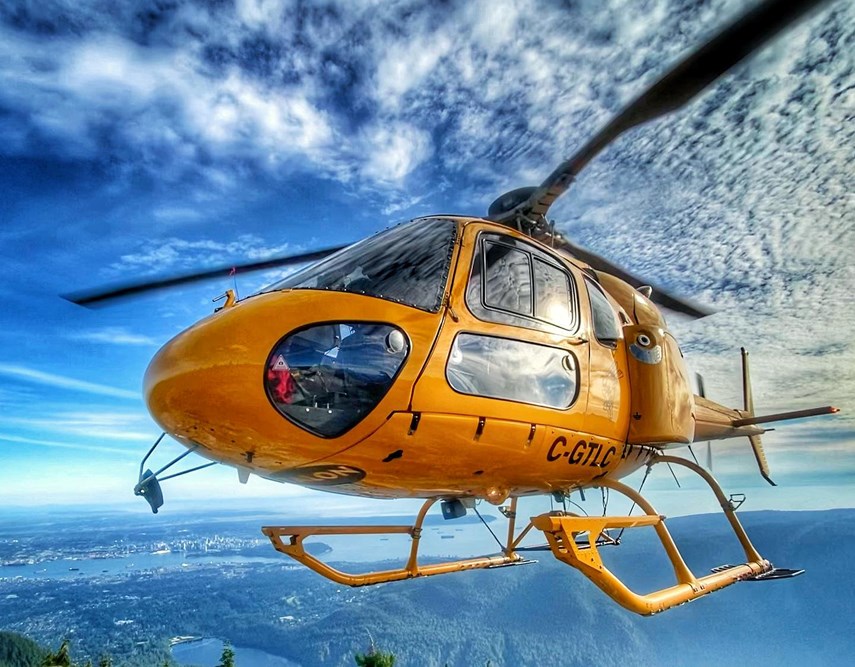After being called upon five times over the weekend, North Shore Rescue has already smashed the team’s record for the number of rescue calls – and the winter conditions haven’t even set in yet.
Search manager Doug Pope said the team has logged about 165 calls in 2021. In December 2020, they broke the previous year’s record, with 151.
“It’s a huge number for a volunteer rescue team. That’s more than three calls a week,” Pope said, adding that members also pour dozens of hours into training, patrols, gear maintenance, public education and fundraising. “It just adds a great amount of time for all our team members.”
It’s a similar story in almost every volunteer SAR group’s jurisdiction, Pope noted. When COVID-19 arrived, it sent everyone to the outdoors looking for safe recreation options.
“We were on an uptick before the pandemic but this extraordinary push has to [be related] because it was night and day after a few months,” he said. “There's more people out there.”
Not surprisingly, the number of international tourists requiring a rescue has gone way down, but number of calls for help from Canadian tourists is up.
“If you've lived in the city most of your life, you probably don't have a lot of experience in the mountains and they get a full dose of it here,” Pope said.
Calls stemming from mountain bike crashes are also up, Pope noted, which means District of North Vancouver or West Vancouver firefighters have been particularly busy with calls in the front country.
“More people are buying bikes instead of heading to Hawaii and all the other places people used to go,” Pope said.
It used to be that volunteers would face burnout by the end of the summer. To help manage the load, NSR’s leadership now deploys smaller teams on each call.
“I just don't think we could be sustainable if we were calling out the whole team for every call we get. It was Tim Jones’s way of doing business,” Pope said. “He used to say we were like the old Montreal Canadiens. When the puck goes in the corner, everybody goes in the corner and gets it. We can't do that now. We have been a lot more selective.”
In late 2020, the team got access to Talon’s new Dauphin helicopter, which has given them the ability to fly at night, carry out rescues with night vision goggles and hoist subjects out of difficult-to-access areas. That has greatly sped up some rescues and eliminated the need for many overnights in the backcountry, but it also means more requests for assistance from other teams in the Lower Mainland, Sunshine Coast and Vancouver Island.
“It just makes better sense for the team’s safety and the outcome for the patient,” Pope said.
Thankfully, fall tends to be a slower time of year for the team as rain keeps people closer to home. But as the weather cools down, trails ice over quickly at higher elevations and people are more likely to be injured in a fall.
The team was called out just after noon on Saturday when a 62-year-old woman slipped on the Pump Peak of Mount Seymour and hit her head. Members of her hiking group were well equipped and kept her warm while they waited for rescuers to arrive. Cloud cover prevented NSR’s helicopter from landing near the summit, but a ground team reached the woman on foot and helped walk her out to a waiting ambulance in the Seymour parking lot.
Proper footwear (not running shoes) is a must, as the seasons change, Pope said, and the north face of Tim Jones peak is particularly treacherous.
“It's very dangerous, and we've had broken legs, head injuries and broken necks in that location,” Pope said.
The days are also getting shorter, which typically means more people getting caught out after dark without proper gear.
To help stay out of trouble, North Shore Rescue recommends everyone carry the 10 essentials: a light, a signalling device, lighter, extra clothes, a knife, shelter, food and water, a first aid kit and navigation tools which include a map, compass and GPS as well as a cellphone or radio.
Beyond that, they advise never hiking alone, making sure each trip is well researched, and always making sure someone else knows where you’re going and when you’re due back.



